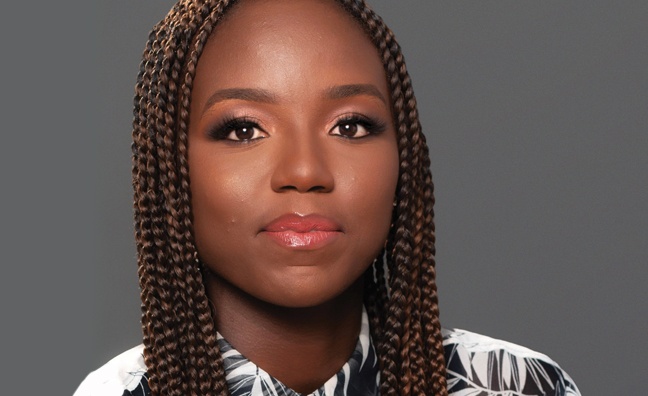Two years ago, Temi Adeniji took on the combined role of MD at Warner Music South Africa (since rebranded to WM Africa) & SVP, strategy, Sub-Saharan Africa. Here, she shares her outlook for the continent’s developing market and assesses breakout genres Afrobeats and amapiano...
What was the opportunity you saw in this role?
“I moved from New York to Jo’burg in November 2021. Through my experience, I’d had a lot of opportunities to interact with MDs across our business, including South Africa. So I had developed a rapport with the employees, and an understanding of the market, even while I was in New York. Also, I’m Nigerian and I believe deeply in this market’s opportunities. Our presence has always been focused on South Africa, and I wanted to transition the business to a more comprehensive view of the continent.”
Sub-Saharan Africa was the fastest growing region in 2022 with revenue up 35% (IFPI). Is that market development significant?
“It’s a great stat, but I always caution that it’s still a very low base. There’s quite a lot of work that needs to be done in terms of enforcement of rights, governments really need to crack down on pirated content. A country like Nigeria doesn’t have a functional PRO and that’s the most populous country on the continent. So imagine where we would be if we started to make some of this progress. We’re moving in the right direction, but we still have a long way to go.”
How do you see the potential for amapiano as a genre to be exported from South Africa?
“A lot of the success is around live, which is great. But there hasn’t been a major global hit, it’s always been Afrobeats-infused. I do think there is a pathway for amapiano. This has been the furthest that South African artists and their sound have travelled for a long time, so there’s reason to celebrate. Nigerian artists have probably taken the amapiano sound much further than South African artists, but maybe it’s not being attributed as a South African sound.”
I think this is a recalibration of what it means to create pop music
Temi Adeniji
What’s the global reach for an artist like Diamond Platnumz and the bongo flava scene?
“Diamond is signed to us and we’ve been working with him for some time. He’s an incredible artist and performer. Some of it is just figuring out, how do we keep the essence of what bongo flava is, but really start infusing all the different sounds into it to make it feel more familiar if you want to export it? He’s done enough to prove himself in East Africa. So now it’s just how we take that to the next level, which is pan-African and then global.”
How is Warner Music’s relationship with Nigerian indie Chocolate City developing?
“We’ve had huge success with CKay, which came from that partnership. For me, that was the first M&A deal where a label came in, invested and took a piece of the business on the continent. It was a significant turning point; whether or not it becomes part of the Warner Africa story is yet to be seen. Pragmatically, this was a great deal for both sides. We gave them support in order to build their business, and we got one of the biggest exports from the continent in 2021 [Love Nwantiti (Ah Ah Ah)] through that deal.”
Burna Boy and WizKid took Afrobeats global – do artists have to leave Africa to build careers?
“I don’t think you have to be based in another country. Everybody has to go back home because they realise this is such an important part of their success story and will continue to be an important part of their creative process. With Burna, even if he’s spending a ton of time in London, he’ll still go back to Nigeria. Co-signing the up-and-coming young talent is also part of this cycle for a lot of the more mature artists. They get inspiration from those guys who are coming up.”
Finally, has Afrobeats come of age and can it now go even further internationally?
“I think this is a recalibration of what it means to create pop music. I think you’re seeing that across all the different regions – Latin music is having its moment. All of this means that it will no longer be just an Anglo-based idea of pop, everything is going to become mixed in. You’re going to have songs from India, Latin America, Africa, sounds from all of these different places will be part of this pop milieu. I think that’s where we’re going. We’re heading to a place where the sounds are just going to be democratised, as access to music consumption is democratised.”










